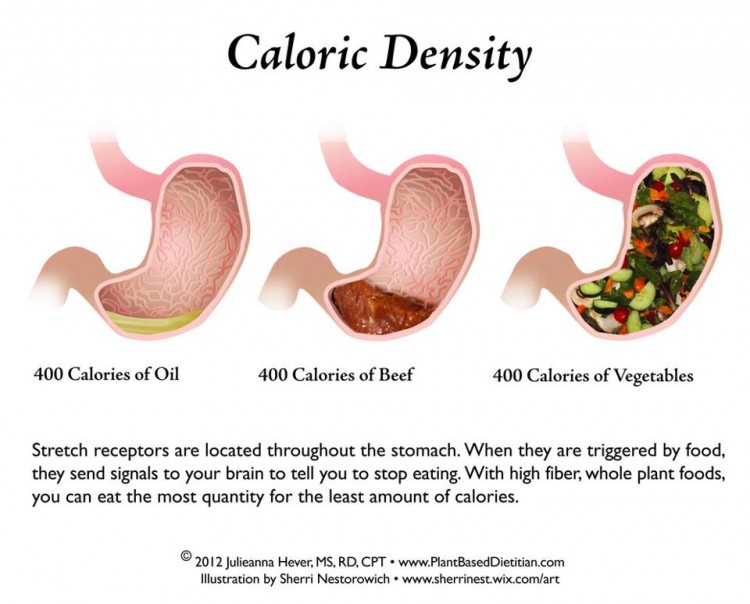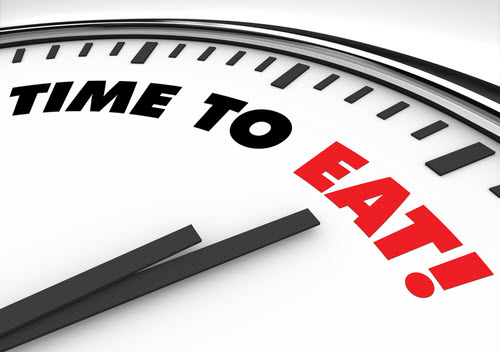Do you ever have days or weeks when you feel hungry all the time and no amount of food can satiate you? Or other times, you don’t seem to have much of an appetite at all and even forget to eat regular meals?
As we’re all individuals, there can be a number of reasons involved in that feeling of being full enough to stop eating. I’m not a fan of counting calories as I believe that it’s more important to get used to listening to your body’s hunger and satiety signals.
If you find yourself constantly snacking and would like to take steps to break the cycle, I hope these 5 tips will help:
1. Are you genuinely hungry? One of the most effective ways to gain control of your weight for life, is to really pay attention to what your body is telling you. Judging by the portions that tend to be served when eating out, we seem to think that we need far more food than we actually do! It’s easy to get into the habit of eating out of boredom, or emotional eating if you’re feeling upset or lonely. I’ve always encouraged clients I’ve worked with for weight loss to ask themselves if they’re really hungry or just bored, before they reach for a snack.
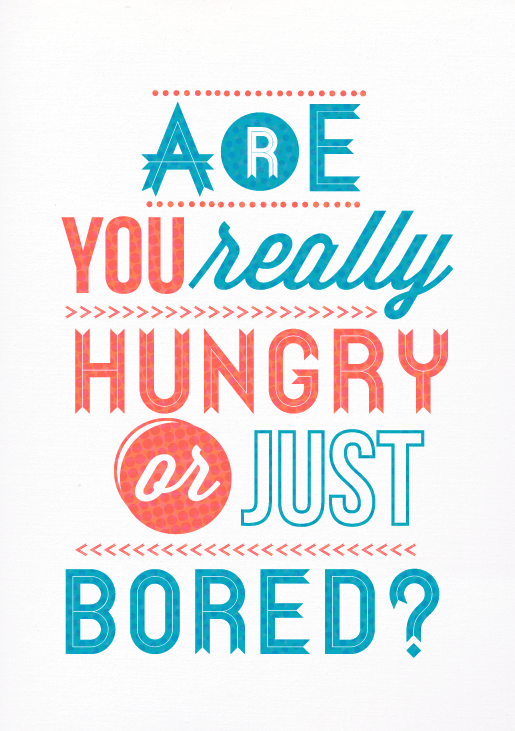
2. Avoid eating on the run: Slowing down, being present in the moment and really developing your awareness around food, snacking and the relationship between food and your body, can make all the difference when it comes to achieving your ideal weight.
We all lead busy, demanding lives, so eating on the run is something we can all be guilty of. I certainly am sometimes! But making less healthy choices when out and about, and then gulping down food can really impact on your waistline and digestion. I always keep a packet of raw almonds in my handbag so that I will always have a healthy snack on hand to keep me going when out and about until I can eat a proper meal.

3. Are you properly hydrated? Sometimes thirst or dehydration can be interpreted as hunger, so try drinking a glass of water first and waiting a few minutes to see if you’re still peckish. We should be aiming to drink at least 8 glasses of water a day and even more if you’re very active or if it’s a warm day. Bear in mind that caffeinated drinks like tea, coffee and some fizzy drinks will act as a diuretic and cause more water to be expelled from your body, which can lead to dehydration.
Herbal teas can also really help if you’re looking for a slightly sweeter taste. I love the range of Pukka teas! Great flavours and awesome packaging. I mean, how could you resist tea that promises to warm your heart?!
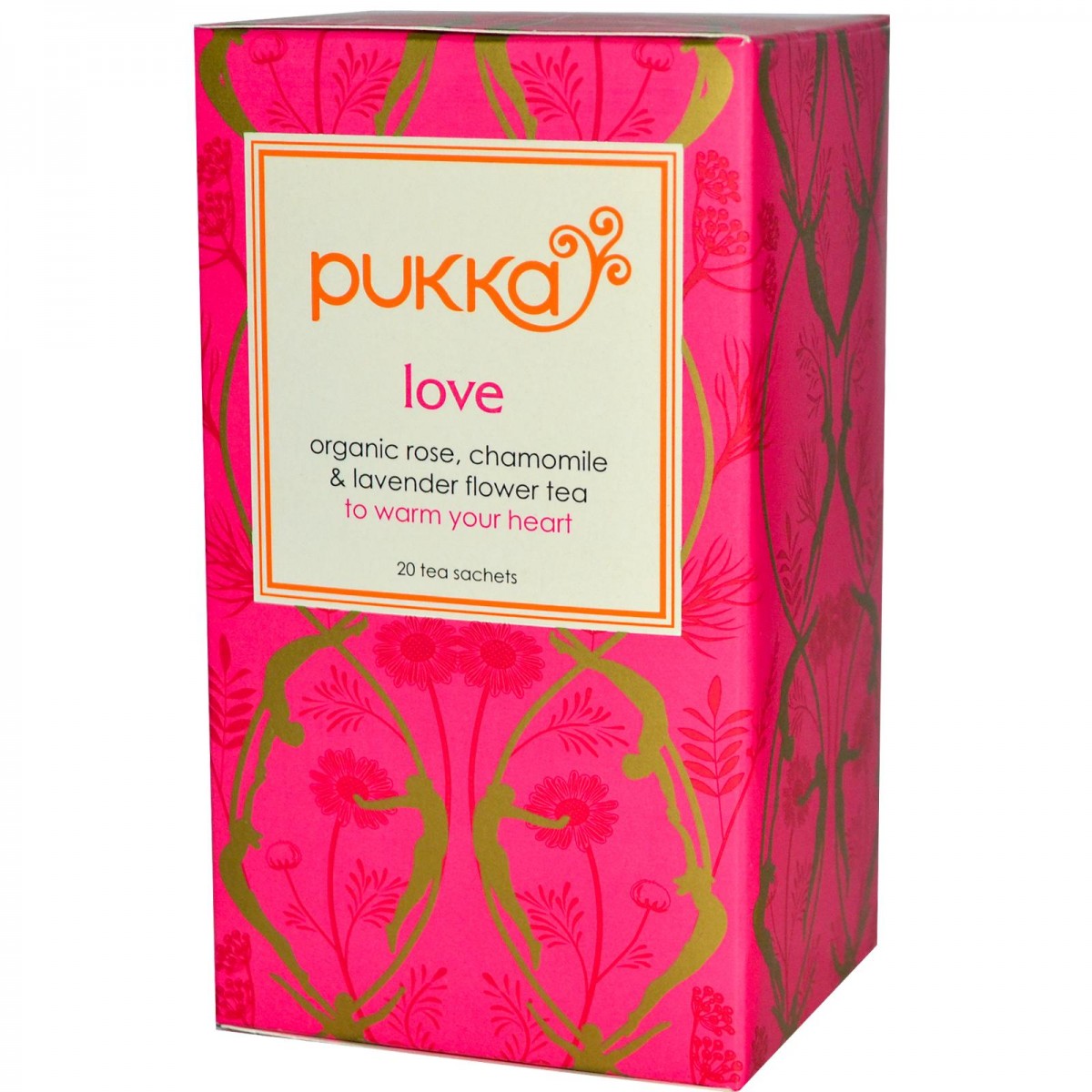
4. Stop Eating When You’re Three-Quarters Full: This is my favourite tip for portion control on a plant-based diet, and it means that counting calories isn’t necessary. Low-fat plant-based meals are nutrient dense but low in calorific energy, so you would have to feel seriously stuffed before you overdo it on excess energy. Listening to your body and appetite signals, eating from a smaller plate and finishing when you’re three-quarters full will ensure that your weight will stabilise to what is ideal for your body type and height.
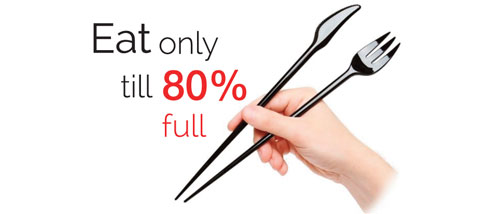
5. Focus on Fibre: One key reason for being tempted to overeat is linked to the actual stretch and feeling of fullness in your stomach.
When your stomach is full after eating, stretch receptors in its walls send a signal to the vagus nerve, which tells your brain to finish eating as enough food has been consumed. One of the many reasons I recommend a diet based on high-fibre plant foods, is because they fill us up so much more effectively than any other type of food, and enable the brain to receive the signal that you’re full.
To use calories as a reference for simplicity here, imagine the difference between 400 calories of vegetables, olive oil and beef in your stomach. You would need to eat plenty of veggies to to get 400 calories worth, (about six cups each of lettuce, aubergine and tomatoes) but they would really fill you up as they’re so rich in water and fibre. However, just below three and a half tablespoons of oil or just under a cup of sliced beef quickly add up to 400 calories, without all the dietary fibre to tell your stomach’s stretch receptors that you’ve eaten enough.
I fin this image to be a useful visual guide, and you can find more info on the importance of fibre here 🙂
